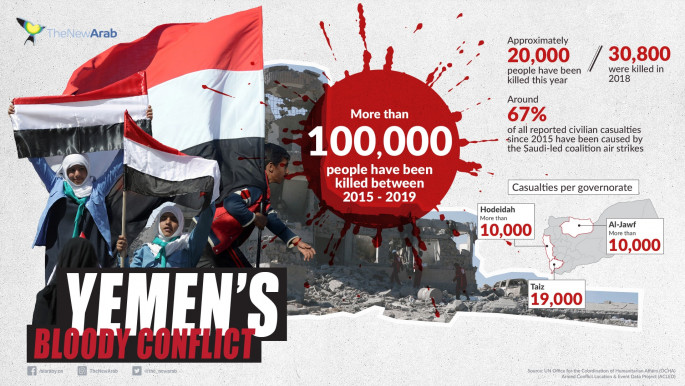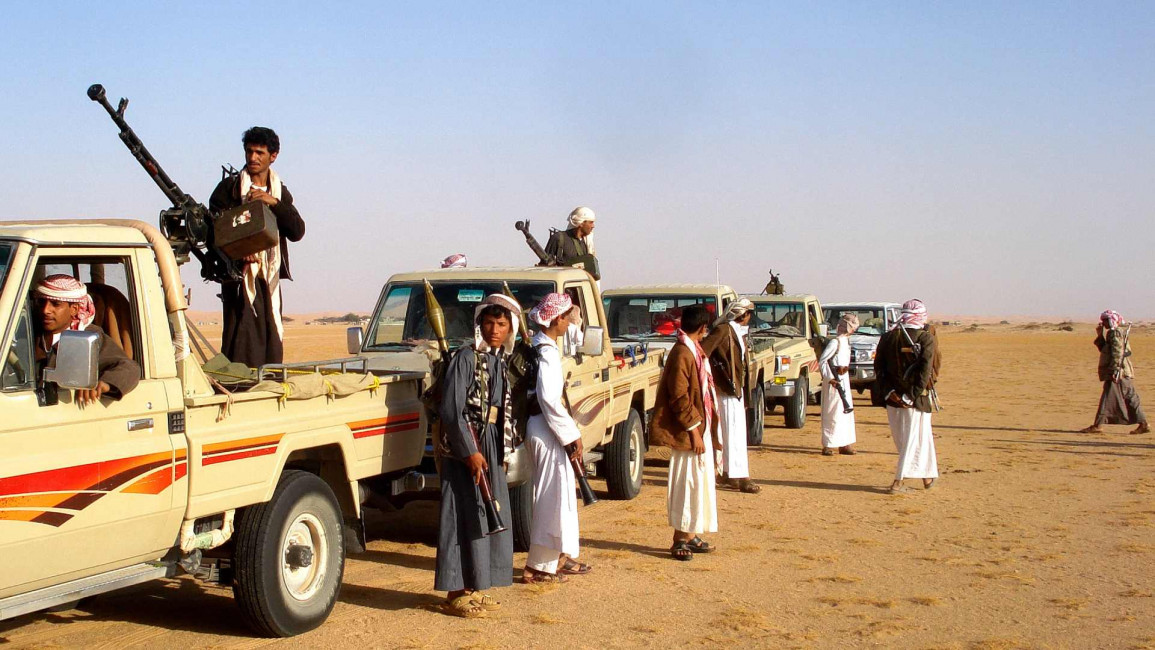Saudi forces open fire on tribal fighters in Yemen's east
Saudi forces attempted to storm a cargo port in the town of Shahn, which lies on the border with Oman, during which they opened fire and injured a number of fighters
The Saudi-led coalition has not yet issued a statement confirming the incident, however the al-Mahra peoples’ sit-in committee denounced the attempted "Saudi intrusion" in a statement published on Facebook.
"The committee condemns these practices and violations committed by the Saudi occupation and its militias against our people," it said. "It constitutes a flagrant violation of Yemeni sovereignty and national identity."
"In this dangerous turning point of our honorable history, we call on all the tribes of the province, their sheikhs and their dignitaries, and their citizens to unite alongside all the liberals of the province to prevent the Saudi occupation from imposing its domination Al-Mahra," the statement continued.
The sparsely populated Al-Mahra province, which lies in Yemen’s desert east, has been spared the much of the bloody fighting that has overrun the country since 2015.
Saudi Arabia stationed troops in the province - taking control of its airport and main seaport - after alleging it was an important weapons smuggling hub from Oman for Yemen's Houthi rebels.
Saudi Arabia has also established over a dozen military bases in the province, leading to frequent tensions with tribespeople which have increasingly flared into armed clashes.
Saudi coalition air strikes kill three dozen
Meanwhile Yemen's Houthi rebels have raised the death toll of Saudi-led coalition air strikes on a residential area in the country’s north over the weekend to 36, including 26 children and six women.
The previous UN death toll confirmed on Saturday was 31, with at least 12 more people injured.
Twitter Post
|
Local residents said the coalition was targeting Houthi fighters, who had taken cover in a residential area near the crash site.
At least three houses were destroyed in the coalition airstrikes, killing all the people inside, they said.
The Iran-linked rebels said the Saudi-led coalition carried out retaliatory air strikes early on Saturday in the mountainous northern province of Jawf, after their fighters shot down a coalition warplane there the previous day.
The coalition said it was investigating "possible collateral damage" following an operation to rescue the Tornado fighter jet's two-man crew. It said that the whereabouts of the two pilots remains unknown.
Colonel Turki al-Maliki, a spokesman for the coalition, said Saturday that the pilots managed to eject safely before the crash. He said the Houthi rebels were responsible for the pilots' "lives and safety".
The weekend crash and airstrikes came amid heavy clashes between Yemeni government forces and Houthis in the provinces of Marib, Jawf and Sanaa.
Hundreds of people, mostly fighters, were killed in the recent clashes that have also forced at least 4,700 families to flee, according to the UN.
In a brutal campaign condemned by rights groups worldwide, Saudi-led strikes have hit schools, hospitals and wedding parties and killed thousands of Yemeni civilians. Meanwhile, the Houthis have used drones and missiles to attack Saudi Arabia.
The Saudi-led coalition of mostly Arab states has been fighting the rebels since early 2015, when it intervened to restore the collapsing authority of the internationally recognised government, headed by Yemeni President Abd Rabbo Mansour Hadi.
The war has killed over 100,000 people in Yemen, including fighters and civilians, according to some reports, and created the world's worst humanitarian crisis, leaving millions suffering from food and medical shortages.
Agencies contributed to this report.
Follow us on Facebook, Twitter and Instagram to stay connected


